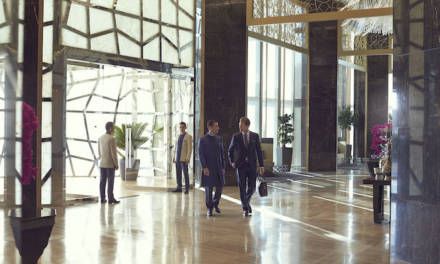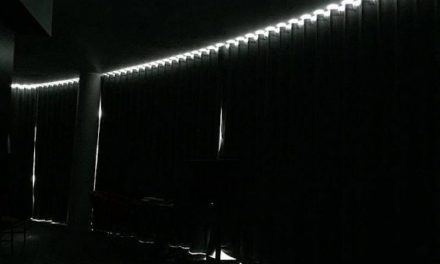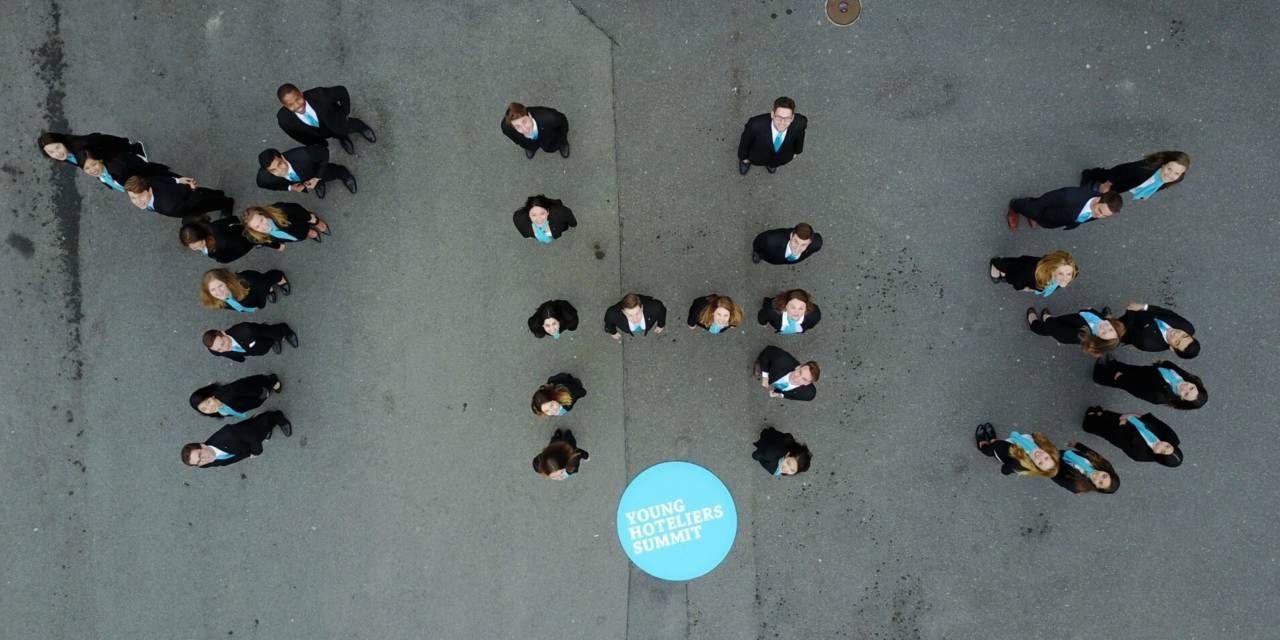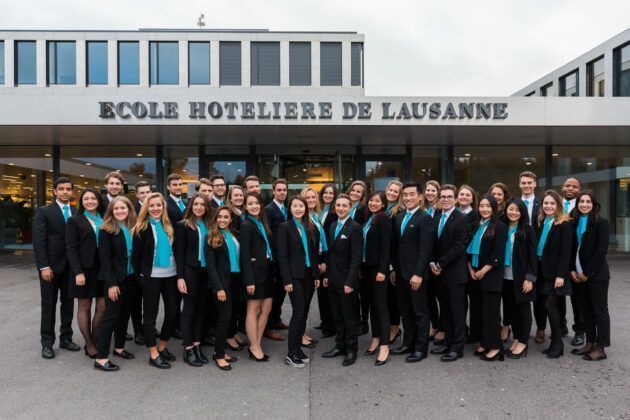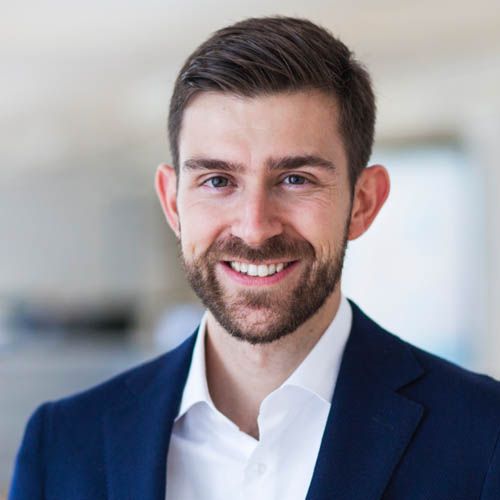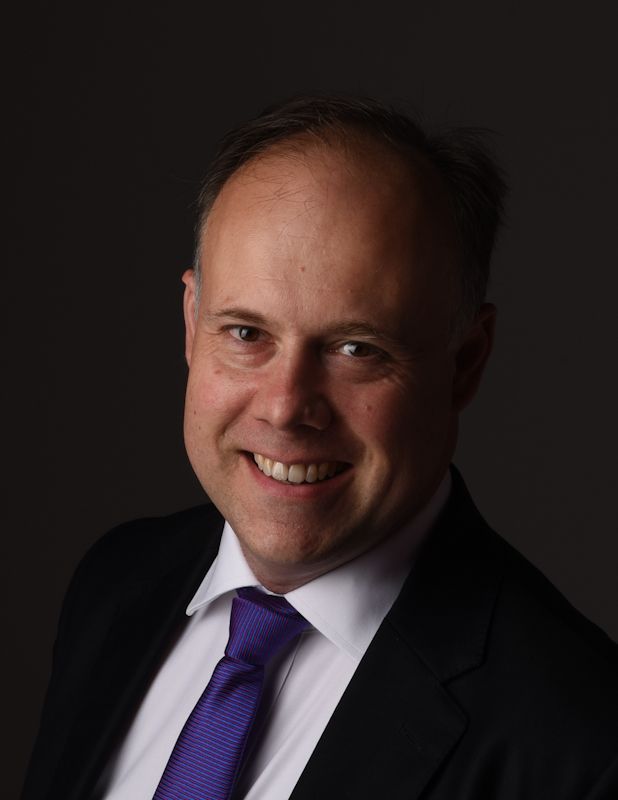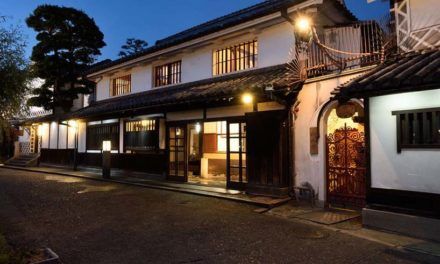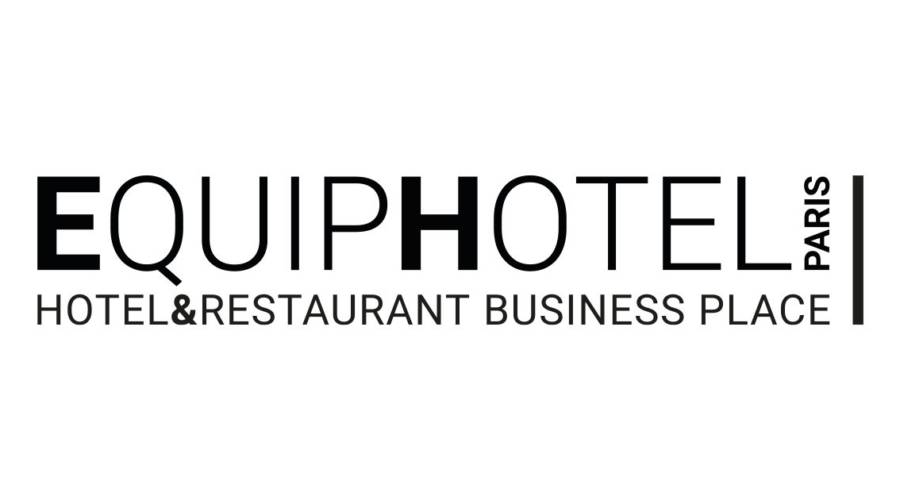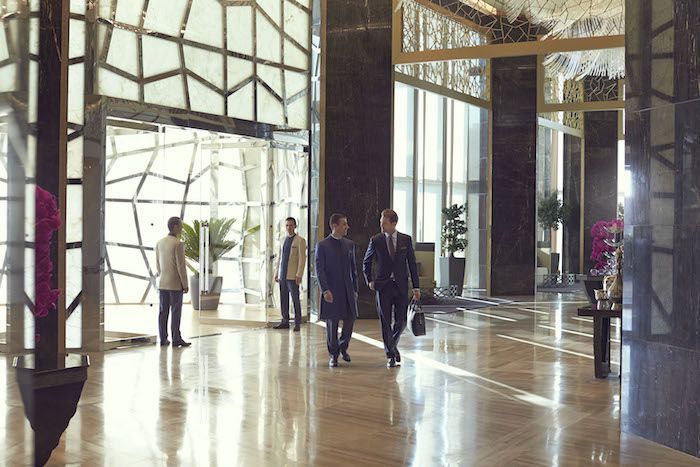What is Young Hoteliers Summit (YHS) in 3 words?
Nicola: Platform of exchange. YHS represents a community for collaborative exchange of industry insights.
Luca: It’s complicated to describe, but I would say it’s like a hallway connecting all different actors of the industry together; the way you might have different rooms with a hallway connecting them. This hallway connects industry professionals, the students, and their academic bodies. It’s like a meeting place which allows to bring these people together.
Martina: The reason I’m doing this is because I love to see the students interact with the industry leaders. Obviously, each of us looks up to them because that’s where we want to be at some point. It’s great to see these professionals take time off from their busy schedules to come here and work with the students in different sessions. For instance, Lyle Worthington, who is this editions challenge provider, is a CIO who has his own company, he’s super busy all the time, and yet he takes 3 days of his time to come here. Yesterday at 11:30 pm up until midnight, he was still with the students, with each team, talking to them on a personal level, motivating them for the challenge. Seeing the students look at him and watching this interaction—that’s exactly why we’re doing this. To bring the students together with the industry leaders and create this exchange as well as this bond.
How do you select the participants? What is the process?
Luca: So basically, all the schools that are invited to participate are schools that offer Bachelor programs in either International Hospitality Management or Hotel Management, sometimes even Tourism and Hotel Administration. They must have a 3-year bachelor’s program and students must have professional experience of at least 6 months, as part of the program. The professional experience is important as it allows the student to understand what’s going on and what we’re talking about during the summit. Inside this framework, our Head of Community is responsible for selecting the best schools from different countries and different regions in order to create for us a global presence. After this primary step, the delegates are selected according to an internal process. The school proposes four names, and this year, they had to make a 1-minute video where they had to pitch themselves, and out of these four, two of them were selected.
This was the first year that we introduced the video. This year, we were coming from an innovation point of view, so it made sense with the overall topic of the summit to challenge the four students to be creative for the selection. They had to come up with an innovative idea relevant to the hospitality industry, and had one minute to present it. The goal for us was to see if the delegates had strong industry knowledge, and if they had good public speaking skills. All these elements are extremely important.
How do you select the topics and the conferences? Is there one topic every year, many topics each time?
Martina: This year’s umbrella topic of the overall summit is tackling the challenge of conventionalism within the hospitality industry. Our Speakers department is the one in charge of selecting the theme every year. It’s a team of three that sit down together, look at what’s going on, read a lot of articles and look at what’s happening in the industry. We came up with this topic because what we recently had was always more traditional players that followed a traditional pattern. But we saw a change in hospitality concepts. The business models are changing. That’s how we came up with the umbrella topic of tackling conventionalism. These new business models are trying to change the industry, in addition to players like Airbnb, and we have many new concepts in hospitality and disruptors, including OTAs which have already been around for a long time. Generator Hostels, one of our partners this year, is the first hostel brand out there, so having new partners come in helps.
Can you tell us more about the challenge, such as the organization, the team, the topics, the way it works, etc ?
Martina: What happened is, the challenge provider, who is also the main sponsor, announced the challenge yesterday during the keynote speech. In the evening, the groups were announced. They got together that evening, and had officially until 11:30 pm to work on the challenge. We have 12 teams of 6-7 people, and we mix the teams so that each team is diverse, including individuals from the different areas in the world. The first challenge for each team was to understand all strengths and weaknesses they have to bring themselves together and form a good team environment. They were able to come up with many innovative ideas and build on them. This morning they had a 30 minute Q&A session with Lyle Worthington and they’re working again right now for two hours to finalize their pitches and presentations. Each team is given 3 minutes to sell their idea and convince a jury of four people, including Lyle Worthington, Frédéric Schumacher from Metro Accelerator, General Director of Horeca Digital; Jens Lapinski, Managing Director of Star Tech; and Ian Millar, senior lecturer here at EHL who’s also involved on various projects with Metro Accelerator. We have all 12 pitches first, and then the jury is going to quickly conclude which 4 teams they want to hear the full 8-minute presentations from.
After the 4 presentations, there will be 5 minutes of Q&A from the jury. That’s when the jury challenges the tea. The students presenting will have to work together within a very short timeframe and defend their idea against the Jurys questions. Only after will the Jury select the winning team.
What is the prize for the challenge ?
Martina: They earn acknowledgment, in addition to two free nights at the student hotel.
Are you already looking at next year’s conference? How are the preparations and the search for sponsors going?
Nicola: The organising team changes for each edition, which is an internal challenge we face every year. With the knowledge we gained during our experience, we start by preparing and improving the next edition, in the aim to overcome mistakes that we made. All our knowledge, experiences and relations have to be handed over, which unfortunately leads to losses. Nevertheless, we know this since from the start and prepare the handover well in advance, keeping in mind all the improvements and new ideas we want to give to the following team.
Martina: Some people were engaged in last year’s edition. For instance, I was involved two years ago as an intern.
Luca: I’ve been doing this three years in a row now.
Martina: As Nico mentioned about the handover, after having experienced a full year of organising, we now see so many things that could have been done better. It’s true that you’re always smarter after making the mistakes. Now we could all go back and organize the summit again without making the mistakes that we know about now, but we don’t have that privilege with the new team of organisers. That’s the challenge of student-run committees.
How are you preparing to transmit the information from this year’s to next year’s Core Team?
Nicola: First of all, we have to find the new core team. The three of us are keeping an eye on motivated and suitable new candidates that either participated in last years or this years edition, so they have experience and are up-to-date with the newest developments of YHS.
Luca: There are many positive aspects with a student-formed committee, but we have certain limitations which are unfortunately difficult to change. Since we are students and we do not do this on a professional basis, we don’t invest as much time or as much effort as we would do if this were our main activity. But then of course, it’s up to the next team to decide what’s next. Because of these default settings that YHS has, there is a limit to the growth of the organization. We can grow up to a certain point, but after that, we do not have the time, the knowledge, the people, the means to grow bigger. One day, someone will have to make a decision with these considerations in mind.
Any last comments?
Martina: I think we’ve been really lucky to have such a great team, especially the HODs who have been sitting with us every Thursday night, spending two hours discussing how everything is coming together. I am super thankful to each and every single one of them.
Nicola: It was a huge experience and I am very thankful to all the members that made this year’s summit possible. All of them were super committed and hardworking, during the preparation phase and even more during the three days of the summit.
Martina: This year, it’s actually very cute because we’ve received messages from last year’s delegates or last year’s YHS members, from 2 years before even, who write to say, “Hey, I can’t believe it’s already been two years, I wish you all the best of luck for this edition, I’m sure you’re going to do great.” It’s just this sense of community which I believe is really making a difference within the hospitality industry in general. People nowadays don’t look for professionalism anymore; they look for this sense of reality and genuinity within the people.
Each past delegate becomes an alumni. We have a Facebook group where everybody is included, and it’s funny because members post messages like “Hey, look who we just met at another conference.” We even get that from individuals who were delegates two years ago. Quinn Cox, who was a speaker yesterday morning, was actually a delegate 3 years ago and now he’s on stage. So this sense of community plays a very important role.
Youri Sawerschel
Founder Creative Supply & Brand Strategist
The co-founder if YHS
When Rachel Crawford, Anil Varghese, Christophe Oneyser, Giovanni Forni and me started the event, we really wanted to “break the bubbles” of hotel schools. Back then, there was zero communication between the hotel schools at student levels.
Today, thanks to YHS, students across the world have realised that they share the same dreams and the same fears.
Now they have a voice in the industry and can collectively share their opinions and expectations about their career prospects.
Laurent Delporte, an editor and conference speaker, is a strategic expert in the sector of hotels. A visionary, he brings his unique look on hotels in service to the decision-makers in the industry, whether to enhance the development of new projects or strategic visions.
Laurent has visited and audited over 350 hotels across the world and also participates in mystery visits to provide quality control for the world’s finest hotels.


 HOME
HOME